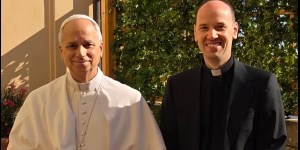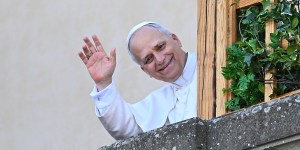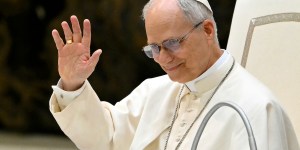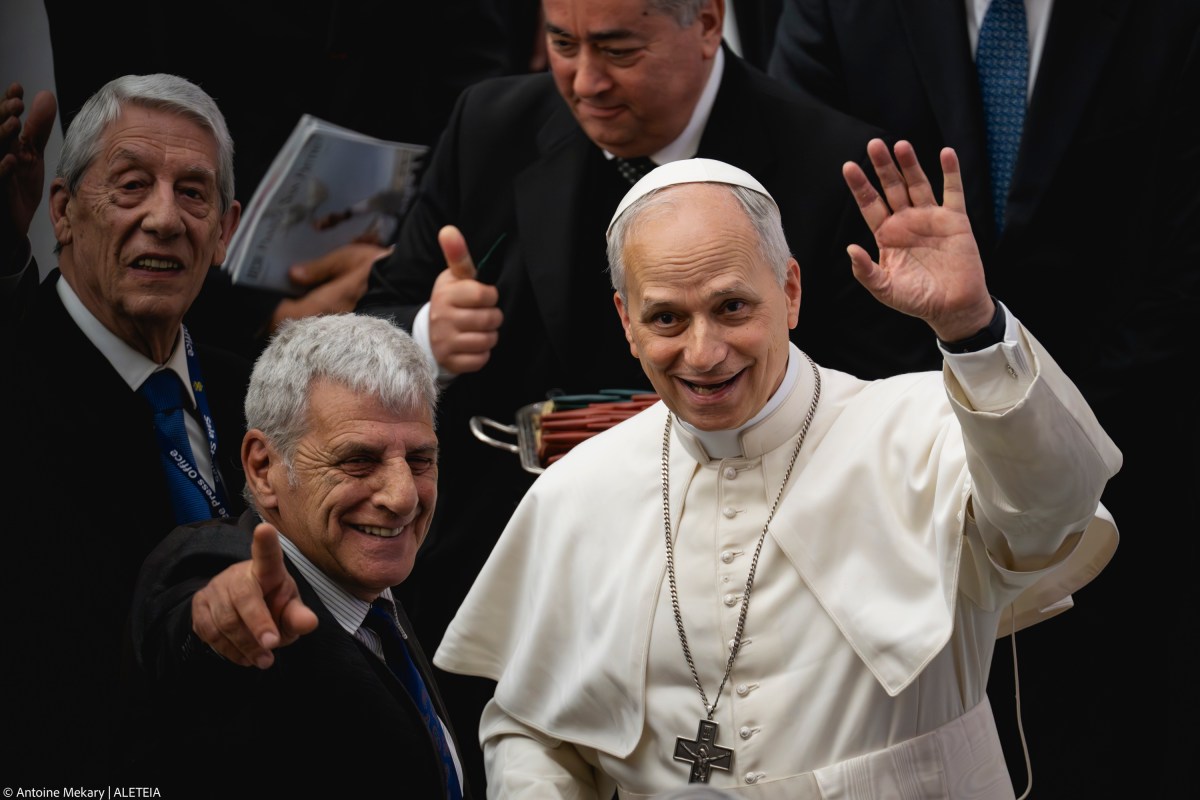“For the pope’s words to have value, they must be rare,” one of Pope Francis’ close associates advised him. The Argentine pontiff didn’t agree. His pontificate was characterized by a multitude of interviews and sometimes ambiguous statements. Throughout his pontificate, Francis gave more than 200 interviews to media outlets of all stripes. And that’s not to mention his famous press conferences on the plane returning from his trips.
Leo XIV is clearly establishing a distinct and more sober style. For the moment, he has only given one in-depth interview. Specifically, he spoke to American journalist Elise Allen of Crux media, for her book Leo XIV: Citizen of the World, Missionary of the XXI Century (published first in Spanish by Penguin Peru, coming in English in 2026).
He also spoke briefly with RAI journalist Ignazio Ingrao at the end of his visit to the Vatican Radio broadcasting center in Santa Maria di Galeria on June 18, calling for “the promotion of peace.”
A few words on international news
However, since the beginning of September, a new tradition has emerged. Pope Leo XIV has taken to spending a day of rest at the beginning of the week at his residence at Castel Gandolfo. Every Tuesday evening, when he heads back to the Vatican, he stops to greet the faithful gathered outside. This gives journalists the opportunity to ask him questions about current events.
In these two or three minutes, Leo XIV usually agrees to say a few words about international news. On September 9, he expressed concern about the “truly serious situation” caused by an Israeli strike on Qatar. Then on September 23, when asked about Russian threats in Eastern Europe, he replied that Europe “could make a difference” if it were “truly united.”
Then on October 1, the first pope from the United States reacted to the controversy over an award to be presented to a U.S. senator by the Diocese of Chicago, considering what it means to be pro-life. He also expressed perplexity at the “Secretary of War” — the new name for the Secretary of Defense — and a meeting of the country’s military leaders organized in the presence of President Trump.
“We must work for peace,” he warned, while hoping that this “style of government” dedicated to “exerting pressure” could help dissuade other powers from going to war.
Always keen to bring nuance to a highly polarized global scene, the Pope also considered that there were “very interesting elements” in Trump’s plan to end the war in Gaza.
An unapologetic but discreet presence
These few points shared with journalists reveal some of the characteristics of Leo XIV’s communication style. He expresses himself without causing shock. At the same time, he distills a few concerns and points of attention that the media and foreign ministries are then quick to analyze.
His way of answering questions, or even anticipating them, also shows that the Pope is connected and well informed in real time. For example, on September 9, he spontaneously mentioned the Israeli strike on Qatar that had just taken place.
He doesn’t necessarily go through all the diplomatic and institutional filters at his disposal, but he knows how to use the microphones handed to him without hesitation to convey certain messages. He particularly speaks out to promote peace and the inviolable respect for the sovereignty of states.
His first trips will also be an opportunity to better understand how he interacts with journalists. He’s likely to resume the practice of holding press conferences on the plane on his return from trips, as his predecessor did. However, he may also ask his press office to gather questions in advance, as was the case under Benedict XVI’s pontificate.
The German pontiff, known for his intellectual depth, was reluctant to improvise and was committed to delivering highly structured speeches … which did not prevent some serious misunderstandings in the interpretation of his words.
The unprecedented openness of John Paul II
Going further back, the early days of John Paul II’s pontificate were marked by his great openness to media requests. This included interviews that are somewhat forgotten today, but which at the time testified to a spectacular thaw in relations between the papacy and the press.
On August 10, 1983, shortly before his visit to Lourdes, Soir 3 broadcast a segment presented as the first televised interview with a pope, obtained by FR3. These appearances became rarer thereafter, as his communication gradually became more polished and controlled under the influence of his spokesman Joaquin Navarro Valls, who took office in 1984.
It’s possible that Leo XIV will in turn surround himself with a personally selected communications team. This would mean reshuffling the teams of the Dicastery for Communication that have remained in place since Francis’ pontificate.
In any case, he will certainly follow the line proposed during his audience on May 12 with journalists gathered in the Paul VI Hall. On that occasion, he promoted a kind of communication that “does not use aggressive words, does not follow the culture of competition and never separates the search for truth from the love with which we must humbly seek it.”



